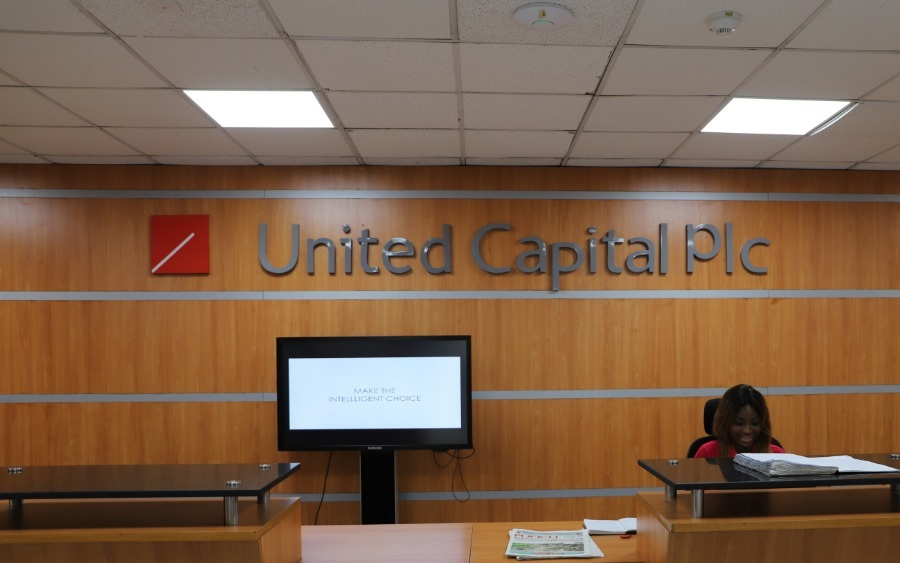It’s over a year since United Capital appointed a new Group Chief Executive Officer. Mr. Peter Ashade replaced former GCEO Oluwatoyin Sanni last June (2018) in a move that surprised some of us.
The company claimed, Toyin Sanni wanted to pursue a personal venture thus the reason for her resignation. Toyin Sanni who was once declared the All African Business Woman of the year 2017 by CNBC Africa, & Nigeria’s CEO of the Year 2017 by Pearl Awards is now the founder and CEO of the Emerging Africa Capital Group.
The company’s share price also fell from a high (February 2018) of 4.30 to N3.10, a 29% drop just before Toyin Sanni left. Unfortunately, since she left the share price of United Capital has continued to fall and shareholders are not finding this funny.
Since the second half of 2018, United Capital share price has fallen from about N3.18 to N2.07 (as at Friday, September 13, 2019). The GCEO, Peter Ashade was appointed on June 13, 2018. Year to date the stock has dropped by about 26.6% worse than the Nigerian Stock Exchange All Share Index (-11%).
What could be the reason? In its 2019 Half-year results reported a few weeks ago the company recorded a massive 17% decline in its revenues. Revenues dropped from about N3.8billion to N3.2 billion. Pre-tax profits also dropped 17% from N2.39 billion to N1.99 billion.
- Income from Fixed deposits went from N605.7 million half-year 2018 to N315.5 million same period in 2019.
- “Other income” (its financial reports does not explain what this means) also fell massively from N443 million to N52.9 million accounting for most of the profitability decline.
- The company also earned about N772 million from fees down from N930 million same period last year.
- Most of the company’s investment is in debt securities. In fact, out of the N68 billion, it has in investments N23 billion is invested in Commercial Papers, N5.9 billion in treasury bills, 17.8 billion in FGN/State Bonds and another N13.1 billion in corporate bonds.
- Most of its cash is in short term funds.
- We believe the reason for the drop in its income is because of the slide in borrowing rates which started since last year.
- Treasury Bills rates and yields have fallen from its 2016 highs of 17% to under 12% affecting its revenues.
Ashade explains: The CEO attempted to explain what may have been the reasoning for its declining numbers. Firstly and ironically he claimed profits grew in the second quarter (3 months) by 27% obviously comparing this to second-quarter profits in 2018.
- However, half-year results are compared with half-year of the prior year. So it is understandable that he chose to comment on the growth but not on the declines.
- What is clear is that United Capital has a very bad Q1 where pretax profits fell by a whopping 48%.
- He also sort of blamed the tough economic conditions on Brexit, election, Buhari’s appointment of his cabinet, China trade war and slow pace of bond issuances. Link
- In his comment on the first-quarter results, he placed the blame squarely on the 2019 elections, claiming it affected bond issuance.
- He did also promise a stronger second half of the year.
The trend in declining profits: United Capital profitability decline started in 2017, during Toyin Sanni’s time as GCEO. Profits fell from an all-time high of N6 billion in 2016 to N4.3 billion in 2017. This was mostly due to lower “other income” and higher income taxes. The “other income” also dropped this year. Like we alluded above, this could be because of the drop in bond yields, its major source of revenue.
Is there an upside: United Capital remains one of the best dividend-paying companies. Its current share price suggests an indicative dividend yield of about 14% one of the highest in the industry.
- However, with bond yields still well below 2016 highs, United Capital will have to reduce cost massively if it is to maintain higher share prices.
- Despite slight declines in its half-year result, it has still not reduced operating cost in line with revenue declines. In fact, the decline we saw in its result was as a result of a write back.
- The advisory fees market is also quite competitive and may not improve revenues significantly as Ashade hopes.
NB: The article was updated to reflect the fact that the company’s share price also dropped during the time of the former GCEO, Toyin Sanni. The third paragraph of the article was amended accordingly. Nairametrics welcomes feedback from readers on any of its published articles.
